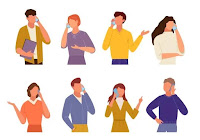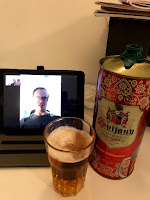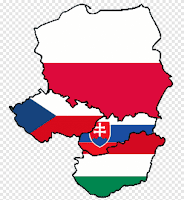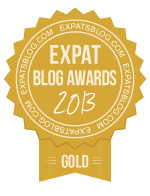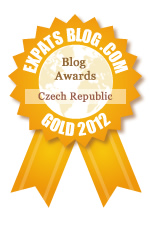 There's a difference between formal, written Czech and colloquial spoken Czech. Standard Czech is what you'll hear across the country on the nightly news. However, everyday Czech is a bit different.
There's a difference between formal, written Czech and colloquial spoken Czech. Standard Czech is what you'll hear across the country on the nightly news. However, everyday Czech is a bit different.
Just as there are three distinct regions in Czechland there are three primary Czech dialects to be found. There's a dialect spoken in Silesia, near the Polish border, that a mishmash of Czech and Polish. The dialect is actually closer to Polish than it is to Czech. That doesn't mean that people there can't, or don't, speak standard Czech but the accent can be tough to understand if you're not used to it. It's been referred to as "unintelligible funny Polish-like gibberish."
The most widely used spoken Czech is the variety found in Bohemia. There are some grammatical differences from standard Czech. There are also some pronunciation differences where Bohemians have more open vowel sounds than Moravians, especially in Prague.
In "Bohemian" -ý becomes -ej and -é becomes -ý. The word dobrý (good) becomes dobrej and dobré becomes dobrý. Given the seven Czech cases there are more words to keep up with.
The declension of můj (my) gets changed from: mého to mýho, mému to mýmu, mé to mý, mém to mým, mých to mejch, mým to mejm, and mými to mejma.
The declension of dobrý changes word forms from: dobrý to dobrej, dobré to dobrý, dobrého to dobrýho, dobrému to dobrýmu, dobrém to dobrým, dobrých to dobrejch, dobrým to dobrejm, dobří to dobrý, and dobrými to dobrejma.
In Bohemia they don't really follow the rules for the 7th (Instrumental) case when it comes to plural words. They just use -ama or -ma for everything. So hranokly (French fries) becomes hranolkama, brambory (potatoes) becomes bramborama, and auty (cars) becomes autama.
In Bohemia, then tend to put a "v" sound before words that start with "o". Okno (window) becomes vokno, oko (eye) becomes voko, omáčka (sauce) becomes vomáčka, ostrý (sharp) becomes vostrej, ospalý (sleepy) becomes vospalej...
Moravians don't do any of this. Another thing that distinguishes people from Prague is that when they speak it is kind of singsongy.
I'm told that Moravians speak better proper Czech than Bohemians do. However,
Moravia has more local dialects. And Moravians for sure don't sing when they speak.
The biggest pronunciation differences in the Moravian dialect are:
-í/ý becomes é. The word for "mill" in Czech is mlýn but becomes mlén.
-y becomes e. The plural world for "fish" is ryby but it becomes rebe.
-the diphthong ou becomes ú. The world for "flour" is mouka but it becomes múka.
In Czech, "I am" is já jsem but in Morava you'll hear já su. "I want" is chci but you'll often hear people say chcu.
There's some different vocabulary used in Moravia.
In Brno, we have our own dialect called
Hantec. It's a mixture of standard Czech, the Moravian dialect, German and Yiddish. Hantec is spoken mostly by older people but many Hantec words are used by everyone in everyday conversation.
Šalina is the most well known word. It means "tram" but the rest of the country uses the world
tramvaj. When I'm in Prague and say "šalina" people instantly know that I'm from Brno.
 Sčítání 2021 is the national census which just began. It runs from 27 March until 11 May. If you don't want to deal with paper forms then you can do the whole thing online but the online submission must be completed by 9 April.
Sčítání 2021 is the national census which just began. It runs from 27 March until 11 May. If you don't want to deal with paper forms then you can do the whole thing online but the online submission must be completed by 9 April. 






